As a pet owner, it’s natural to wonder what human foods your furry friend can safely enjoy. Beans are a popular ingredient in many dishes, but their safety for dogs isn’t always clear. While some beans can be a healthy, protein-rich treat for your pup, others pose serious health risks.
Cooked, plain beans are generally safe and offer benefits like fiber and essential vitamins. However, canned or seasoned beans should be avoided due to high sodium and harmful additives. It’s crucial to prepare beans correctly to ensure they’re safe for your dog.
Before introducing beans into your dog’s diet, consult with your veterinarian. Moderation is key, as overfeeding can lead to digestive issues. This guide will explore the nutritional benefits, safe preparation methods, and potential risks, helping you make informed decisions for your dog’s diet.
The Nutritional Benefits of Beans for Dogs
Beans offer a wealth of nutritional benefits for dogs, making them a valuable addition to your pet’s diet when prepared correctly. They are packed with protein, fiber, and essential vitamins that contribute to overall health.
Protein, Fiber, and Essential Vitamins
Beans are an excellent source of protein, which is vital for muscle growth and maintenance. They also contain high amounts of fiber, which supports healthy digestion. Additionally, beans are rich in vitamins like iron, potassium, and magnesium, all of which play crucial roles in your dog’s energy levels and overall well-being.
Boosting Immunity and Digestive Health
Regular consumption of beans can help boost your dog’s immune system and support digestive regularity. The antioxidants found in black beans, for example, contribute to immune system support, while green beans provide high fiber content that aids in digestion and weight management.
When introducing beans to your dog’s diet, it’s important to use plain, cooked beans to maximize their benefits without introducing harmful additives. For more detailed guidance on feeding your pet, visit our resource page to ensure you’re providing the best for your furry friend.
How to Safely Prepare Beans for Your Dog
Preparing beans for your dog involves careful steps to ensure they’re safe and nutritious. Proper preparation can make a big difference in your dog’s digestive health.
Proper Cooking Techniques and Soaking Tips
Start by soaking dried beans overnight. This helps reduce gas and makes them easier to digest. After soaking, boil or steam the beans until they’re soft. Avoid adding any seasoning or sugar during cooking.
Avoiding Harmful Ingredients Like Salt and Spices
Never add salt, garlic, onions, or spices to your dog’s beans. These can cause serious health issues. Plain, cooked beans are the best option. For canned beans, rinse them thoroughly to remove excess sodium.
Cooked beans are easier for your dog to digest than raw or canned ones. They also offer more protein. For example, pinto beans are a great source of protein and fiber when cooked properly. Always cook kidney beans thoroughly to remove toxins.
When serving, mash the beans for easier eating. Start with small portions to see how your dog reacts. Remember, beans should only make up a small part of your dog’s diet. Always consult your vet before making any changes.
Can Dogs Eat Beans: Safety Considerations and Portion Control
When it comes to feeding your dog, it’s essential to approach new ingredients with care. Beans can be a healthy addition to your dog’s diet, but only when served in the right amounts and prepared properly.
Determining the Right Serving Sizes for Small and Large Dogs
For small dogs, start with a teaspoon of plain, cooked beans. Larger dogs can begin with a tablespoon. Gradually increase the portion based on your dog’s size and how they react. This cautious approach helps prevent digestive upset.
Monitoring Digestive Reactions and Adjusting Amounts
Watch your dog for signs of discomfort, like bloating or diarrhea. If any issues arise, reduce the serving size or consult your vet. Adjustments may be needed based on your dog’s age, health, and individual needs.
Beans should only make up a small part of your dog’s meals. Always introduce them slowly and as part of a balanced diet. Remember, every dog is different, so tailor the portions to keep your furry friend happy and healthy.
Types of Dog-Safe Beans and What to Avoid
When considering beans as a snack for your dog, it’s crucial to distinguish between safe and harmful varieties. Some beans are packed with nutrients, while others can pose serious health risks.
Identifying Bean Varieties That Benefit Your Pet
Green beans are a top choice, offering vitamins A and C along with fiber. Black beans provide protein and potassium, while lima beans are rich in fiber and minerals like calcium and magnesium. Pinto beans are another good option, offering protein and vitamins B and C. Garbanzo beans, also known as chickpeas, are high in protein and fiber, making them a healthy snack when prepared correctly.
Dangerous Beans and Risky Additives to Watch For
Raw kidney beans contain high levels of lectins, which can cause severe vomiting and diarrhea. Baked beans are often loaded with sugar and spices, making them unsafe. Refried beans are high in fat and salt, and chili beans usually contain onions and garlic, which are toxic to dogs. Canned beans are also a concern due to their high sodium content and preservatives.
Always choose plain, cooked beans and avoid any with added spices or salt. Even safe beans should only make up a small part of your dog’s diet. For more guidance on feeding your pet, visit this resource to ensure you’re making the best choices for their health.
Wrapping Up Your Bean Feeding Strategy
When it comes to sharing human food with your furry friend, beans can be a nutritious and safe option when prepared correctly. As a responsible pet owner, introducing new food like beans should be done with care to ensure your dog’s health and well-being. Always opt for plain, cooked beans without any seasoning, and avoid harmful additives like garlic or spices.
Remember, the key to a successful bean-feeding strategy is moderation and observation. Start with small portions and monitor your dog’s response. If you notice any signs of discomfort, adjust the serving size or consult your veterinarian. Plain, cooked beans are the best way to introduce this food into your dog’s diet without risking their health.
For more detailed guidance on feeding your pet, visit our resource page to ensure you’re providing the best for your furry friend. By following these simple guidelines, you can help support your dog’s weight management and digestive health in a safe and effective way.
FAQ
Are beans safe for dogs to eat?
Yes, most beans are safe for dogs in moderation. However, it’s important to ensure they are plain, unseasoned, and properly cooked to avoid digestive issues.
What are the health benefits of feeding beans to dogs?
Beans are rich in protein, fiber, and vitamins, which can support your dog’s immune system and digestive health. They also provide essential nutrients for overall well-being.
How should I prepare beans for my dog?
Always cook beans thoroughly and avoid adding salt, spices, or seasonings. Plain, cooked beans are the safest and healthiest option for your pet.

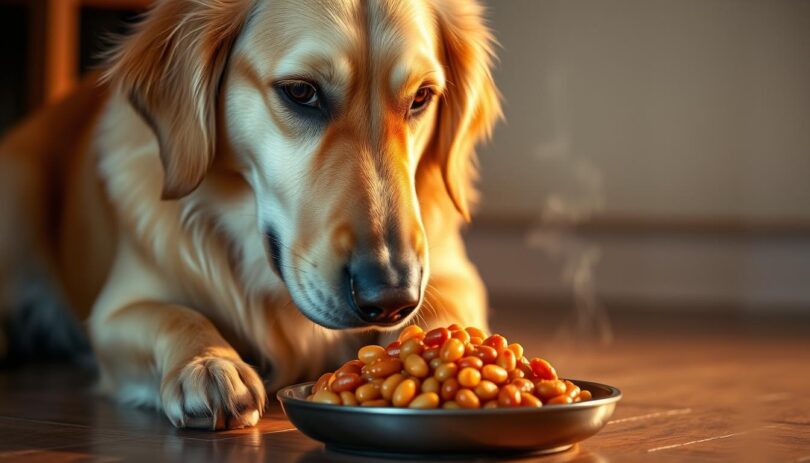
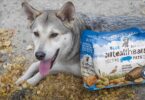
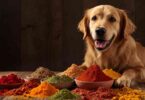

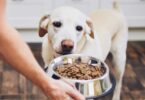
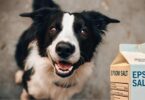


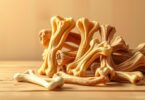
Leave a Comment